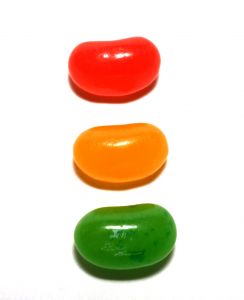A hit!
 Dr. John Crippens at NHS Blog Doctor noted with concern that “most Google searches on childhood immunization throw up pages and pages written by the anti-immunization lobby. And that is what parents read.”
Dr. John Crippens at NHS Blog Doctor noted with concern that “most Google searches on childhood immunization throw up pages and pages written by the anti-immunization lobby. And that is what parents read.”The medical professionals at Medgadget followed up by conducting their own investigation and were equally concerned by what they found. A Google search for “vaccination” yielded 54 hits from medical authorities, whereas alternatives returned 942 hits. A search for “immunization risks” found sites full of bad science and scares, they report. “Many similar searches — vaccination dangers, vaccine side effects, and others return pseudoscience links en masse....Google is an unwilling participant that is likely responsible for far-reaching health consequences for many children and their parents.”
These are valuable cautionary tales not only for the public, but also for healthcare professionals. We know how difficult it is to sort through the methodology and conclusions of the million medical and scientific papers released each year to determine which ones are sound and clinically relevant and which ones aren’t. Peer-review may help to weed out the bad research, but it has proven itself to not be like a scientific seal of approval. The quality of published studies is increasingly worrisome as even major medical and scientific journals have had published papers discredited recently.
So, we shouldn’t be surprised at how hard it is for everyone to wade through the massive amounts of information on the internet and figure out what is credible and what isn’t. Most of it isn’t. As the doctors at Medgadget and NHS Blog Doctor noted, it’s the wacky stuffy, driven by special interests, that dominates the internet.
Immunizations are a tiny example of how overwhelming health information on the internet can be. For people trying to learn about “healthy eating” they’ll encounter 1,460,000 sites all ready to give them their idea of what it means to eat “healthy.”
There are even more — 1,840,000! — with their own explanations of “junk food.” And when it comes to “obesity” the public is faced with 32.7 million sites, all with their own agendas to explain the “problem” and 66.6 million sites with prescripts for “weight loss.” And to review all of the sites about “diets,” you would need to visit more than 5,700 sites every single day for your entire life! It’s no wonder that so many people — even healthcare professionals and policy makers who believe they know what is best for everyone — come away believing unsound things and take as gospel the pages of kooky things that pop up first when they do an internet search, regardless of which search engine they use. Virtually no one has the time or inclination to go to the original source for each claim to realize many are bunk. This is especially true when it comes to our diets and our body weights. The proliferation of pseudo-junkfood science even among public health officials was perfectly illustrated this week as authorities in England ban “junk food” advertising to address the problem of “obesity,” and permit children to be exposed only to foods officially labeled as “healthy.” The Food Standards Agency is also labelling foods with traffic lights (red = bad, green = good), believing most people are too uneducated to understand food labels and need help to avoid eating “junk food.” — Kids will want to stick with the green M&Ms and jelly beans. :) These officials have defined “junk food” as any food high in fat, salt and sugar — including foods such as cheese, instant hot oat cereal, peanuts and peanut butter, raisins, olive oil, chocolate and hamburgers! Defying any sound nutritional science or good sense. Commentary: This problem is bigger than Google. Health professionals, public officials and media professionals bear the responsibility for rising above the junk science; giving and using careful, evidence-based science; and first “doing no harm.” © Sandy Szwarc 2007




<< Home